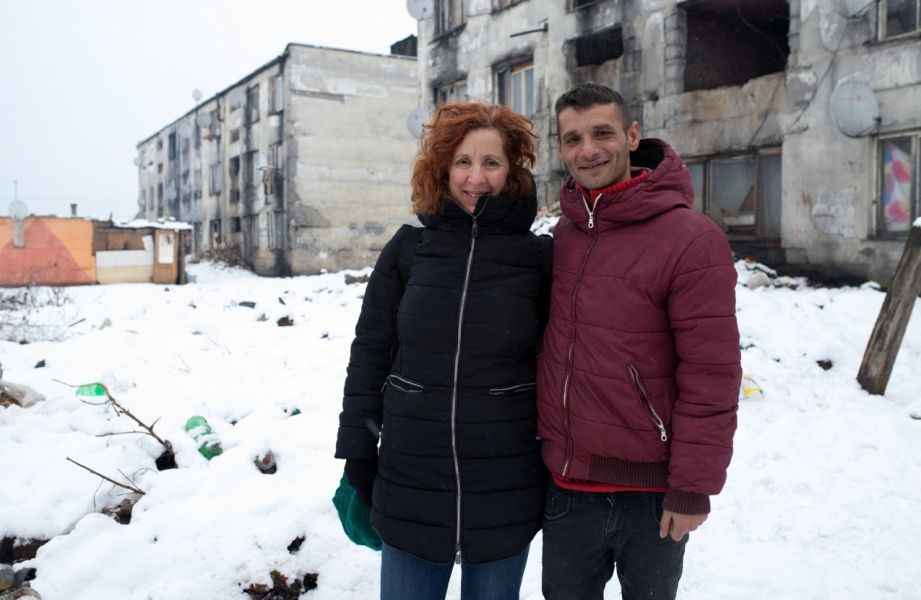In the December frenzy, vague fragments of memory lurked in my mind about some promise I made earlier to Tomi Horn. Yes, the Bálint House will certainly be happy to participate in the next trip as part of the Dzsi-Dzsu project, that is, we are going to go with him for a trip with Adománytaxi.
I only thought of writing to my co-workers during the holiday season, telling them that immediately after the silence and relaxation in January, they should join us on an all-day charity trip. The next, sharper memory is the email Tomi sent to everyone who signed up for the adventure on 21st of January.
It was a scary and correct email. It suggested an incredible commitment, a desire to teach, preparedness, and a deep experience. I was amazed and proud to have such an initiative in the Jewish community and behind it such talented young people.

So I tried to follow his instructions: arrive on time, dress warmly, and bring food so the team wouldn’t be waiting. I couldn’t prepare for several things: the encounter, what I saw, what I experienced.
Our first stop was Szepsi. This is a ghetto in a small village in Slovakia. Igor was waiting for us there. He lives there. He is the chief organizer and the soul of the community. He invited us into his apartment, two tiny rooms stuffed with people. He served us food. It was cold outside, with loud noise, snow, mud, and unthinkable poverty. Tin houses without heating, electricity, and water. Trash. Containers that are not emptied by the municipality although the residents pay for it. Inside peace, laughter, warmth, hospitality, and wonderful music. Igor talked. He told me about the fights, the humiliation, the attempts to break out. About the Raoul Wallenberg Prize that he received last year and about the attempts to ban the roma from the beach. About the fact that they are Hungarians and that the Slovaks do not like it. Isn’t that absurd?
We were standing in the snow, sometimes getting hit by snowballs, accompanied by laughter and huge brown eyes. I would say it was like in a movie. But this was reality. In 2018 in Europe. I looked at Igor, he smiled, he was cheerful, and committed. I watched the children running happily around the horrible neighborhood, which was, for them, home, love, family, belonging.
When we got back on the minibus, I closed my heart. I didn’t know what to feel, what to think. I still don’t know.
Other things, such as Bódvalenke, the frescos, lunch, helped me return to normalcy. So instead of jumping across the abyss of consciousness, I walked slowly back into the familiar warmth of the reality I know.
I would lie if I said I knew what to do. I would lie if I could draw any conclusions from this experience. I slowly begin to recall fragments of my memories and maybe one day I will notice that I’ve made sense of what I experienced and I already know what, how, and why.
I am sitting here on the sofa in my heated, comfortable apartment with my laptop. It’s a few hundred kilometers and a week apart from my trip with Adománytaxi. Worlds apart. And I don’t know how I feel. I’ll say so when I do.
I can only thank those who know what to do. And they are ready to do it. Something. Thank you.

